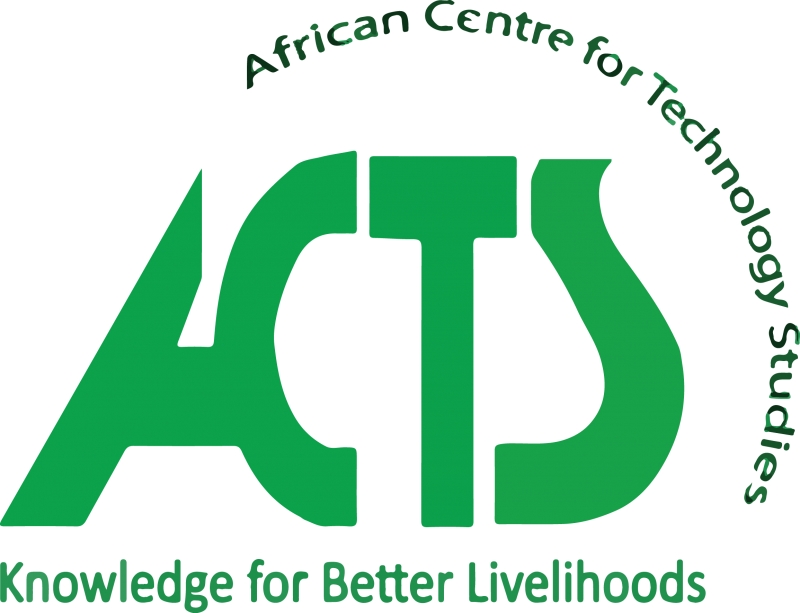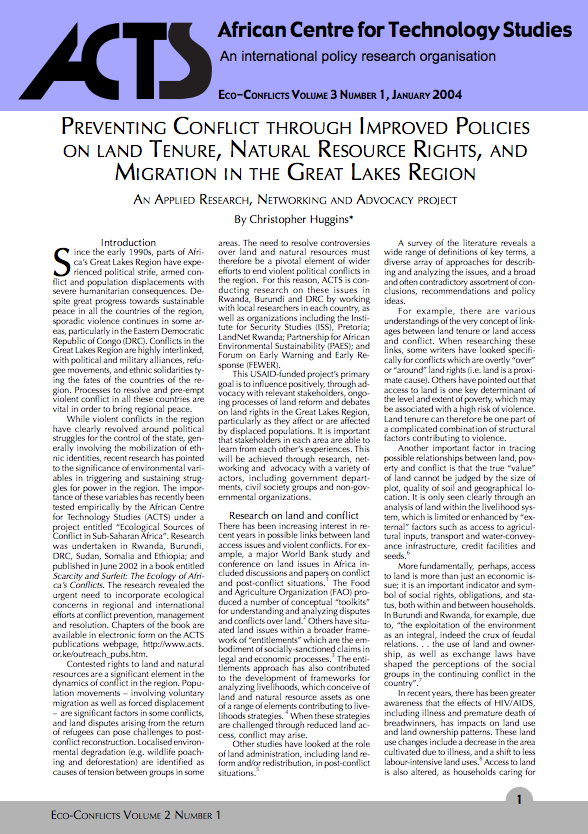Location
Our Vision: Knowledge for better livelihoods.
Our Mission: To strengthen the capacity and policies of African countries and institutions to harness science, technology and innovation for sustainable development.
Our Value Proposition
To conduct high quality research, policy analysis, capacity strengthening and outreach on applications of science, technology and innovation policies to sustainable development in Africa
To facilitate and convene evidence based policy dialogue and debate
To inform development policy and practice
To put critical issues of science, technology innovation on the Development Agenda
To provide independent and objective policy advice to African governments and agencies, regional economic communities and institutions, private sector, civil society and community actors and agencies.
A Brief History
The African Centre for Technology Studies (ACTS) is a pioneering development research think tank on harnessing applications of science, technology and innovation policies for sustainable development in Africa. ACTS is an Intergovernmental organization founded in 1988 to pursue policy oriented research towards strengthening the capacity of African countries and institutions to harness science and technology for sustainable development. ACTS envisions a sustainable economic, social and environmental future for Africa, through science, technology and innovation.
Article 3 of the Charter of ACTS, empowers the Organization to undertake capacity building, conduct research, provide advisory services and disseminate information on the policy aspects of the application of science and technology to sustainable development in Africa. It also requires ACTS to:
Promote capacity building in the developing countries in the field of policy analysis related to sustainable development.
Monitor international trends in science and technology, undertake technology assessment and forecasting and analyze the impacts of new technologies for purposes of providing policy options to African and other developing country governments.
Promote, enhance, inspire, study and conduct the building of the institutional framework requisite for the management, assessment, sustainable utilization and conservation of natural resources.
Foster the exchange of information and networking between the Centre and other governmental and private institutions and individuals that have similar or related interests at the local, national, regional and international levels, with particular emphasis on policy matters.
Promote, encourage, inspire and undertake technical cooperation activities between and within nations.
Since its founding, ACTS has been instrumental in enlarging the range of policy choices for sustainable development in Africa. Over the last quarter century, ACTS’ work has influenced patent (i.e. industrial property) legislation and policy (Kenya); environmental impact assessment standards (Eastern and Southern Africa); bio-energy and biofuels policy (Kenya, Eastern Africa, West Africa); agricultural policy, bio-diplomacy, biotechnology and biosafety (Africa-wide); climate change adaptation and mitigation (Africa-wide).
ACTS remains among the leading institutions working on sustainable development in Africa. In 2013, it was rated amongst the top Environment Think Tanks in Africa and the world. ACTS is also a past winner (1991) of the Justinian Rweyemamu Prize from CODESRIA (Africa’s Social Science Research Council) for its work in expanding the knowledge base for Africa’s development.
Members:
Resources
Displaying 6 - 10 of 10Preventing Conflict through Improved Policies on Land Tenure, Natural Resource Rights, and Migration in the Great Lakes Region
Since the early 1990s, parts of Afri-ca’s Great Lakes Region have expe-rienced political strife, armed con-flict and population displacements withsevere humanitarian consequences. De-spite great progress towards sustainablepeace in all the countries of the region,sporadic violence continues in some ar-eas, particularly in the Eastern DemocraticRepublic of Congo (DRC). Conflicts in theGreat Lakes Region are highly interlinked,with political and military alliances, refu-gee movements, and ethnic solidarities ty-ing the fates of the countries of the re-gion.
Preventing Conflict through Improved Policies on Land Tenure, Natural Resource Rights, and Migration in the Great Lakes Region: An Applied Research, Networking and Advocacy Project
Contains introduction, research on land and conflict, land issues in Rwanda, Eastern DRC, and Burundi, conclusion. Recent research has pointed to the significance of environmental variables in triggering and sustaining struggles for power in the Great Lakes Region. Contested rights to land and natural resources are a significant element in the dynamics of conflict in the region.
Land Scarcity, Distribution and Conflict in Rwanda
This chapter examines the relationship between land scarcity and conflict in Rwanda. Historically, land pressure has been a severe problem in Rwanda, where over 90% of the population practises agriculture. Land pressure has resulted in declining overall agricultural production, but increasing production for individuals and groups with favourable land and resource access. Cultivation is encroaching into wetlands, national parks and forest reserve areas to satisfy unmet demands for land by some, predominately underprivileged, groups.
Oil and water in Sudan
Sudan, a nation of 36 million people wracked by conflict for 34 of the last 45 years, has generated some four million displaced people during the course of its war. It is estimated that over two million Sudanese people have died as a result of fighting and related starvation and disease. Most conventional analyses have focussed on the identity-based dichotomies to explain the conflict.






